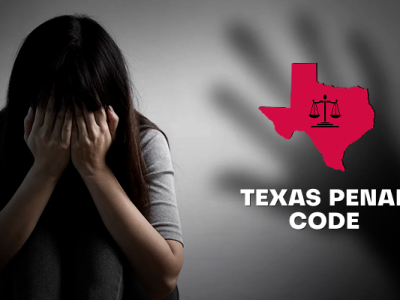
Theft is not a new problem. In fact, it has been almost everywhere and is still a serious issue. In the United States, it is one of the most common crimes. The same is true for Texas, where theft cases are heard all the time.
Some common theft issues include Shoplifting, Embezzlement, and Identity theft. Although these might sound petty, they can actually be brutal. Moreover, the perpetrator faces jail time, fines, and a permanent record that follows them around.
Basically, the Theft Texas Penal Code clearly states what counts and what doesn’t count as theft. Sometimes this might be simple, and sometimes it’s really complicated.
Therefore, read on to get a better idea of what the Texas Penal Code says about theft.
What Is Theft According to the Texas Penal Code?

Texas Penal Code, Chapter 31, defines theft as a crime. Basically, theft is “an unlawful appropriation of property with intent to deprive the owner.”
Simply put, if you take something that isn’t yours, without permission, and you plan to keep it — that’s theft. Moreover, it doesn’t matter what you take – a car, a phone, or even a pack of gum.
In addition to that, it’s not just one thing. This criminal law covers the following cases:
- Shoplifting
- Embezzlement (white-collar – but still counts as theft)
- Receiving stolen property (even if you didn’t steal it yourself!)
- Theft by deception (tricking someone out of their property)
- Theft of services (like skipping out on a bill)
In this case, the Texas Penal Code theft rules throw all these acts under one big umbrella. Hence, this makes it easier for courts to handle.
Theft Texas Penal Code: What Are the Key Elements?
For instance, if someone is getting charged with theft in Texas, the law comes with a checklist. In this case, the prosecutors need to prove the following things:
- Unlawful appropriation — It means that you took something that wasn’t yours without permission.
- Intent to deprive — Not only did you borrow, but you also kept it for a long time. It also applies if you handled the property badly so that the owner can’t really enjoy it anymore.
- No real consent — If you tricked someone or scared them into saying “Okay.” This falls under consent obtained through coercion or deception.
In fact, these bits are what separate theft from something like accidental possession.
What Counts as Theft in Texas? – Types of Theft Offenses

Obviously, Texas Criminal Law doesn’t treat all theft the same. This is because there are levels to theft. Actually, there are varying degrees of severity. The following are some of the major theft offenses you must know about:
1. Petty Theft and Shoplifting
These are minor thefts, like swiping a candy bar or a cheap pair of sunglasses. If it’s under $100, it’s a Class C misdemeanor. In general, it comes with a fine. Although you do not get a jail sentence, it is still on your record.
2. Grand Theft
If the stolen goods/property are worth more than $2,500, it can jump to a felony. In this case, the more expensive the item/property, the worse the punishment. Hence, these types of thefts may lead to jail time, hefty fines, and numerous legal repercussions.
3. Embezzlement and Misappropriation
Embezzlement is not about grabbing something off a shelf — it’s about losing trust. For instance, an employee might skim money from the register. Or someone might misuse company funds. Essentially, it is a form of theft disguised as something respectable.
Identity Theft Texas Penal Code: What Does It Say?
Primarily, identity theft is not merely some online scam anymore. In fact, it affects almost everywhere – it has real consequences and impacts real lives.
Under Texas Penal Code Section 32.51, identity theft is illegal. Essentially, it is a criminal offense to get, hold, pass around, or use someone’s personal info without their consent. Moreover, things might get worse if there is the intent to harm or scam.
The following are the types of personal information that are involved:
- Social Security numbers
- Bank account stuff
- Biometric data (like fingerprints, retina scans, etc.)
- Electronic IDs or routing codes
- Things like voice prints or mobile serial numbers.
Moreover, if you get the info on three or more people, the law presumes intent to defraud.
Texas Penal Code Theft: Major Penalties and Consequences
The following are the different penalties for theft in Texas:
| Value of Property | Classification | Penalty |
| Less than $100 | Class C Misdemeanor | $500 Fine |
| $100–$750 | Class B Misdemeanor | 180 days in jail (max.) + $2,000 Fine |
| $750–$2,500 | Class A Misdemeanor | 1 year in jail (max.) + $4,000 Fine |
| $2,500–$30,000 | State Jail | Minimum 180 days to 2 years in jail |
| $30,000–$150,000 | 3rd Degree | Prison from 2 to 10 years |
| $150,000–$300,000 | 2nd Degree | Prison from 2 to 20 years |
| Over $300,000 | 1st Degree | Prison from 5 to 99 years |
In addition to that, these penalties increase if the theft involves vulnerable victims (elderly people) or if the offender has a criminal record.
How to Defend Against Theft Charges?
Sometimes, a person might wrongly accuse you of theft charges. In that case, reach out to a lawyer immediately. This is important because Texas law is complex.
The following are some common defenses you must know about:
- Lack of intent— The accused did not mean to steal the item/property.
- Wrong person — mistaken identity happens a lot in theft-related cases.
- Had permission — The owner might have given consent casually.
- Mistake of fact — The accused believed they had the right to take it.
- Alibi — The accused was not present while the crime was committed.
- No real evidence — Sometimes the prosecution’s case is flimsy.
In this case, a skilled lawyer will know how to get you out of trouble.
Know the Law. Protect Yourself.
The Theft Texas Penal Code is not merely for criminals. Rather, they are for everyone. This is because sometimes, you don’t even know you are crossing a line. Hence, reaching out to a lawyer is necessary. This way, you will be able to protect yourself from becoming a victim.
Do you have more information and suggestions to provide regarding how to protect oneself from theft accusations? Please share your suggestions and ideas in the comments section below.


